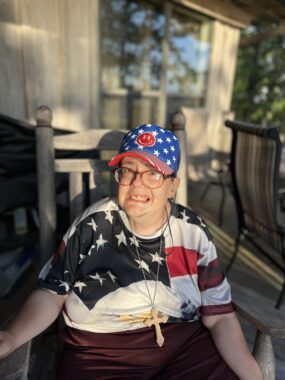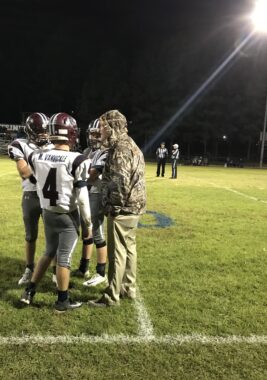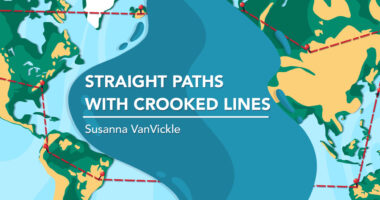What those with Fabry disease understand about kindness
How struggles can make us more sensitive to the needs of others

“Be Kind” is a popular slogan on T-shirts and wall art today. It’s a good message, but how do you foster the ability? I propose that Fabry disease patients, their family members, and their caregivers have much to teach the general population about kindness.
The complexity of life with a rare disease gives us in the Fabry community eyes to see that human equality is much more than being the same, that every person deserves and needs love, and that people really are kind. These are insights that might be especially useful as we close up the global Be Kind to Humankind Week.
Equality in diversity
My childhood was spent moving across hemispheres, from culture to culture, and I’m so grateful for how this shaped my understanding of humankind.
My parents left the familiarity and convenience of their comfortable home in Louisiana to travel to far-flung places where they could live and raise me and my six siblings among some of the poorest of the poor. We met amazing and beautiful people, folks we wouldn’t have had the privilege of knowing had we only interacted with those like ourselves.
When I was 4 years old and living in the Philippines, my brother, Simon-Peter, was born with Prader-Willi syndrome, a rare genetic condition. He’s now 40 years old, and every person he encounters becomes his friend. He has a special gift for noticing the person who might be having a particularly difficult day or need a hug. I know I’m a better person because of Simon-Peter, and he’s had a transforming effect on countless others.

Simon-Peter Summers, brother of columnist Susanna VanVickle, has Prader-Willi syndrome. (Courtesy of Susanna VanVickle)
My big-hearted brother and my three children with Fabry are reminders that humankind is not one melded entity. We are humankind, and we are all distinct. We’re billions of individuals created with unique strengths and weaknesses, abundant in diversity — a diversity that permeates our lives and is not simply skin-deep.
I carry a mutation for Fabry disease, though I’ve lived 44 years without the symptoms. Still, I know how Fabry empowers our individuality. We have a heightened awareness of our physicality and how our condition plays out in our bodies. My children with Fabry have varying degrees of symptoms, for example, which cause them daily suffering.
Humankind has countless combinations of genes and chromosomes, but the dignity of each individual is never diminished by any aspect of our genetic coding. Our nation’s Founding Fathers canonized this tenet of equal dignity in the Declaration of Independence: “We hold these truths to be self-evident, that all men are created equal, that they are endowed by their Creator with certain unalienable Rights, that among these are Life, Liberty and the pursuit of Happiness.”
Universal need for love
The universality of human dignity is the reason we must be kind to all of humankind. Kindness cannot be reserved for those who look like us, live like us, believe like us, or perform like us. Often, if we go by appearances, we’re wrong in our assumptions of what another person needs. One thing is certain, though: People cannot survive and thrive without love and kindness.
Fabry isn’t easily recognizable with a look. That can cause difficulties with some specific symptoms, such as heat intolerance. All three of my kids with Fabry have enjoyed playing sports, and all three of them have issues that are exacerbated by heat. By appearances, they should have the stamina their teammates have, but they’ve had to lean on the kindness and understanding of teammates and coaches when heat makes their neuropathy flare up.
On the other hand, many members of our Fabry community have most likely experienced unkindness, when someone didn’t look beyond the surface to recognize the strengths and gifts we possess. Being kind might actually come easier to those of us with Fabry because of our heightened awareness of hidden struggles and needs.
People are kind
I rejoice, then, with the rare disease community, that we have a week dedicated to the importance of kindness to all of humankind.
Here’s to the first person who offered a shoulder to cry on when we learned of our diagnosis.
Here’s to those who raise awareness of Fabry disease and make finding bona fide medical help easier.
Here’s to the people who’ve written encouraging messages and offered up prayers during treatments.
Here’s to the friends who brought meals and baked cookies on infusion days.
Here’s to those who sympathize, even when they can’t lighten the load.
Here’s to the doctors, nurses, and staff who go the extra mile to make a patient comfortable.
Here’s to the people who choose to be kind to humankind — just because.
Note: Fabry Disease News is strictly a news and information website about the disease. It does not provide medical advice, diagnosis, or treatment. This content is not intended to be a substitute for professional medical advice, diagnosis, or treatment. Always seek the advice of your physician or other qualified health provider with any questions you may have regarding a medical condition. Never disregard professional medical advice or delay in seeking it because of something you have read on this website. The opinions expressed in this column are not those of Fabry Disease News or its parent company, Bionews, and are intended to spark discussion about issues pertaining to Fabry disease.









Leave a comment
Fill in the required fields to post. Your email address will not be published.